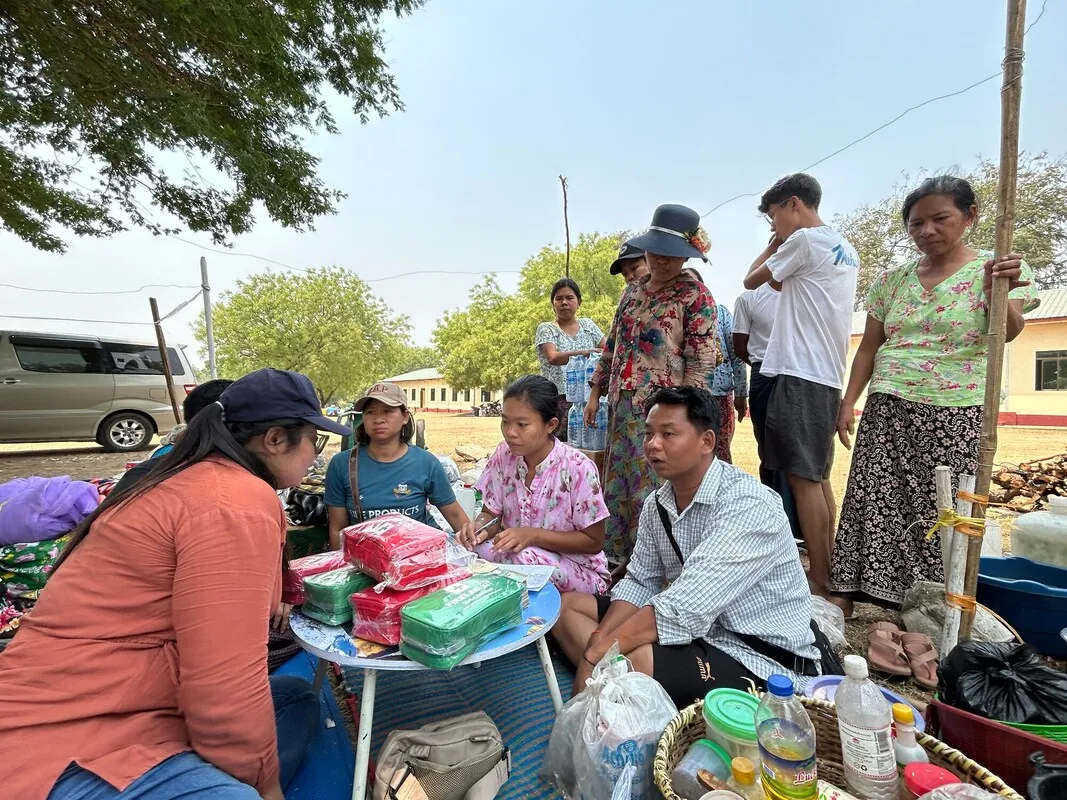Bangkok, Thailand, April 9, 2025 – More than a week after the catastrophic earthquakes struck Myanmar, the death toll continues to rise. Over 3,300 lives have been lost, more than 5,000 people injured, and over 300 remain missing. The disaster has affected more than 17 million people across 57 townships, leaving many without access to food, clean water, shelter, or health care.
CARE Myanmar, together with local partners, has launched an emergency response, reaching thousands of families with immediate aid and preparing to scale up to reach wider impacted communities in the coming weeks. “The scale of suffering is immense,” said Arif Noor, CARE Myanmar Country Director. “Homes, schools, and hospitals have collapsed. Damaged roads and bridges are slowing the delivery of aid. Many families are sleeping in the open – on streets, sidewalks, and in parks – under intense summer heat. Fear remains high, as people are too afraid to return to their homes. We are working urgently to deliver cash assistance, clean water, food, shelter, mobile health clinics, and protection services to those who need it most.”
Women and girls are among the hardest hit. With homes destroyed and families sheltering in overcrowded or open areas, the risks of violence against women and girls are rising. As primary caregivers responsible for collecting water, preparing food, and maintaining hygiene, women are particularly affected by the breakdown of essential services. “When our team spoke with mothers in affected communities, their concerns were heartbreaking,” said Noor. “They weren’t asking anything for themselves, they were worried about their children: How will we feed our children? Where can we find diapers? What will happen if my baby gets sick and there’s no clinic nearby? These are the everyday fears women are carrying in the midst of this crisis.”
CARE places women and girls at the center of its emergency response, recognizing their unique needs and critical roles in recovery. Equally central to CARE’s approach is working together with local partners, combining deep community knowledge with global humanitarian emergency response experience to meet urgent and unmet needs.
One local partner, who was directly impacted by the earthquake and is now supporting needs assessments, shared: “Right now, the biggest need is clean water. Children are getting sick with diarrhea because the water is so dirty. Our well has stopped working, and we have no water at home. One neighbor with a generator has been pumping water and sharing it with the whole village. They’ve set up containers, and whenever water is available, they let everyone know.”
In the coming weeks, CARE will be establishing a new field office in Mandalay to coordinate and scale up relief efforts across the hardest-hit areas. The 7.7 magnitude earthquake has struck at a time when Myanmar is already facing severe humanitarian challenges. The scale of the crisis is overwhelming, and sustained support from the international communities is urgently needed to help those who are suffering.
For media inquiries, email usa.media@care.org, or contact Sarita Suwannarat, CARE, Regional Communications Advisor, Asia, sarita.suwannarat@care.org

